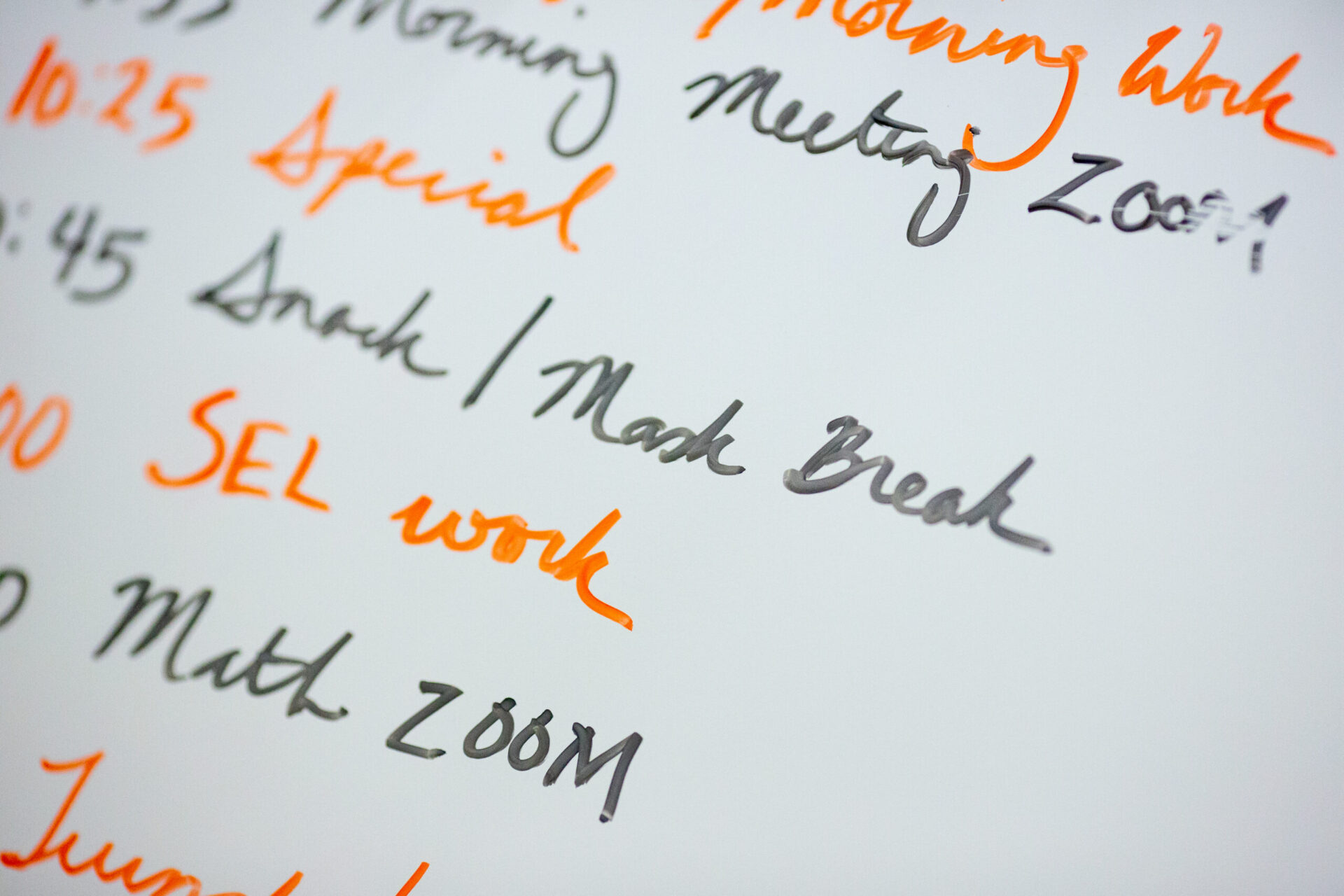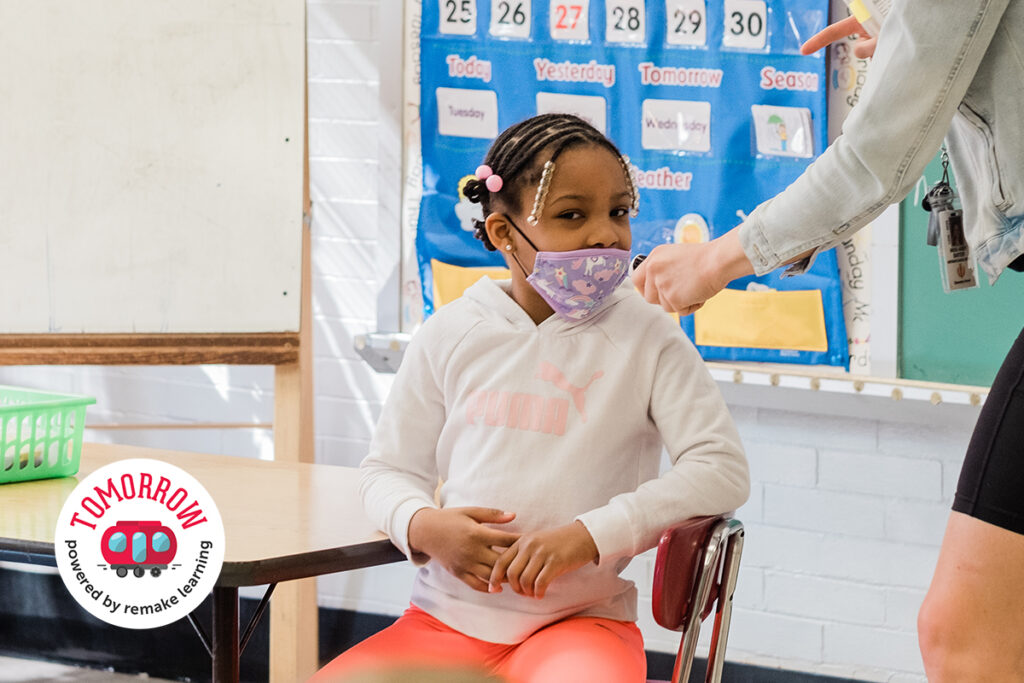On the day this story is published, Mitchell Howard will have exactly eight days of high school left. A 13-year journey from kindergarten all the way to his COVID-disrupted junior and senior years has led to this moment. Howard’s final days walking through the halls of South Fayette High School, where he serves as senior class president, will likely be filled with nostalgia.
But like so many students, he’s also looking ahead: He’ll be leaving Pittsburgh in August to start college at Ohio State. And as he wraps up these very last days of his K-12 career, he’s thinking about what the future could hold for the students who come after him.
“That,” he says, “is the million-dollar question, isn’t it? What is the next school year going to look like?”
Howard and many other students that the Tomorrow campaign has spoken with have a simple request: Don’t let the lessons of the pandemic get lost.
Inequity was an urgent problem long before COVID-19, but it’s become more visible to everyone—students included. Why, Howard asks, do the students at South Fayette all have their own devices to learn on, when kids in many other districts do not?
“We all have the same standards of what a student should know. We need the same resources and the same chance for success,” he says. “This is something we need to do better.”
Earlier this spring, the same sentiment came through loud and clear from teens who served as youth ambassadors for the Remake Learning Days Across America (RLDAA) festival.
If she could change one thing about today’s schools, Pittsburgh Science and Technology high school senior and RLDAA youth ambassador Lauren Smith offered simply this: “I would want there to be equal opportunity for everyone, regardless of how old they are or how much money their family makes or what neighborhood they live in or their race or gender or religion.”
And there’s more, students tell us: Let’s not lose the good things about remote learning, even as we embrace the return to full classrooms and bustling school hallways.
Their ideas are creative and also totally within reach:
- What if schools could start live-streaming sporting events, to increase school spirit and help athletes feel seen and supported?
- What if students who prefer taking notes on a digital device could do that, while others could use pencil and paper?
- What if virtual field trips continued even after in-person field trips resume?
And, as radical as this notion might have seemed pre-pandemic:
- What if students could spend one day per week learning independently, even after COVID is over?

Howard believes high schoolers and even middle-schoolers could benefit from something like “Asynchronous Wednesdays,” where students complete assignments at home and spend part of the day concentrating on personal projects. In some cases, small groups of students could meet over Zoom (or in the case of upper classmen who drive, even meet up in person) to collaborate on group projects.
Beyond personalizing learning for students, this would also help teachers, Howard says. They could use these days to collaborate and mentor one another, and also be available for virtual “office hours” just like college professors.
Students could get personalized support during these office hours, without the social awkwardness of walking up to the front of a classroom and saying in front of everyone, “there’s something I don’t understand.”
And students who can’t work at home on that day, or prefer not to, could have the option of doing their asynchronous day in the school building or perhaps at a local out-of-school-time facility. With that option, this could even work for elementary schoolers whose parents work outside the home.
When we asked younger students about this idea, they were enthusiastic.
“I think it would be a good thing for elementary and middle school,” says Alexander Backus, who is finishing fifth grade in Fox Chapel Area School District and looking forward to starting middle school this fall.
Backus and other fifth-graders told us they liked the idea of one day at home to work at their own pace and explore personal interests, without the stress of live Zoom classes.
And yet they also feel a strong sense of community. Samuel and Louis Pribilovich, twin brothers who are finishing fifth grade at Peebles Elementary, tell us that on remote learning days they would have loved to connect with other kids over Google Meet in a virtual lunchroom. Could that be possible, they ask, on remote learning days in the future?
This craving for community is surfacing among students throughout the region.
Students at Moore Elementary School in Brentwood, Pa., have been enjoying an afterschool “homework club” where they can get personalized support while gathering as a group.
The club began because some students needed extra academic support after months of fully remote learning. But student Lily Enzweiler hopes it continues long after the pandemic ends, because the benefits go beyond help with homework. It has become a place where students connect socially and support one another, she says, and that connection is meaningful.
What if we could build on that, asks Caydence Miller, who is finishing up fifth grade at Moore Elementary along with Enzweiler.
Miller suggests that in the future, elementary schools could teach kids more about supporting one another and embracing their differences. Students could learn more about people with disabilities, she says, and anti-bullying clubs could show every elementary schooler that they have a role to play in making their community a kinder, more supportive place.
All of that really can start in elementary school, these students tell us. They’re ready for a future where we help them work independently, even as we create opportunities for personal connection.
Yes, some students lost pieces of their education during these past 14 months. Yes, things still seem fragmented and strange even as COVID subsides, and systemic inequities remain. But during the pandemic, today’s students have learned things about themselves and about the world they want to build.
They have good advice for adults, if only we listen.
